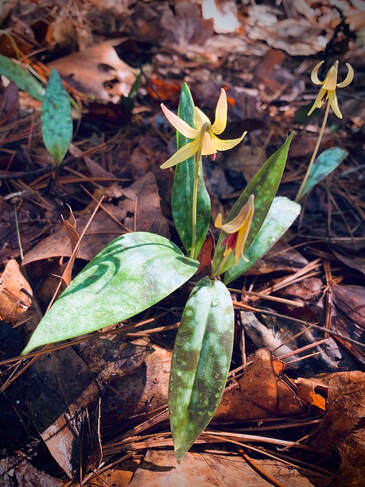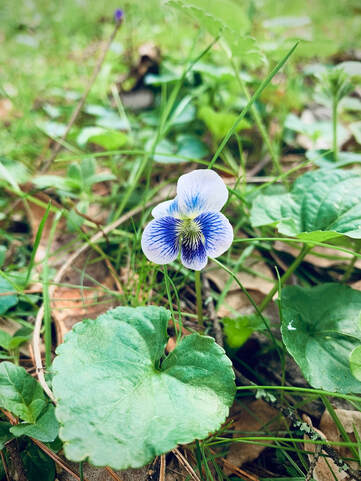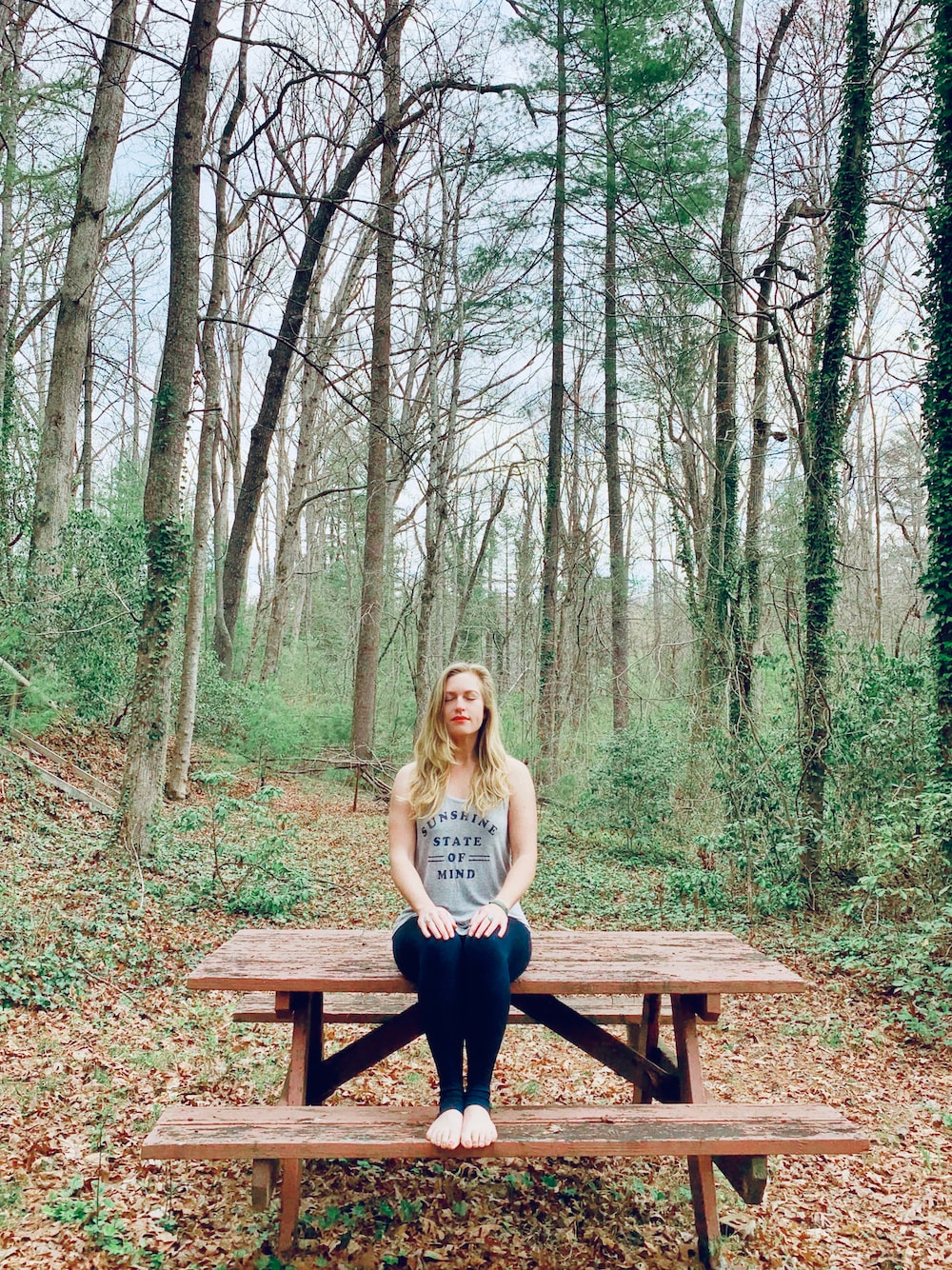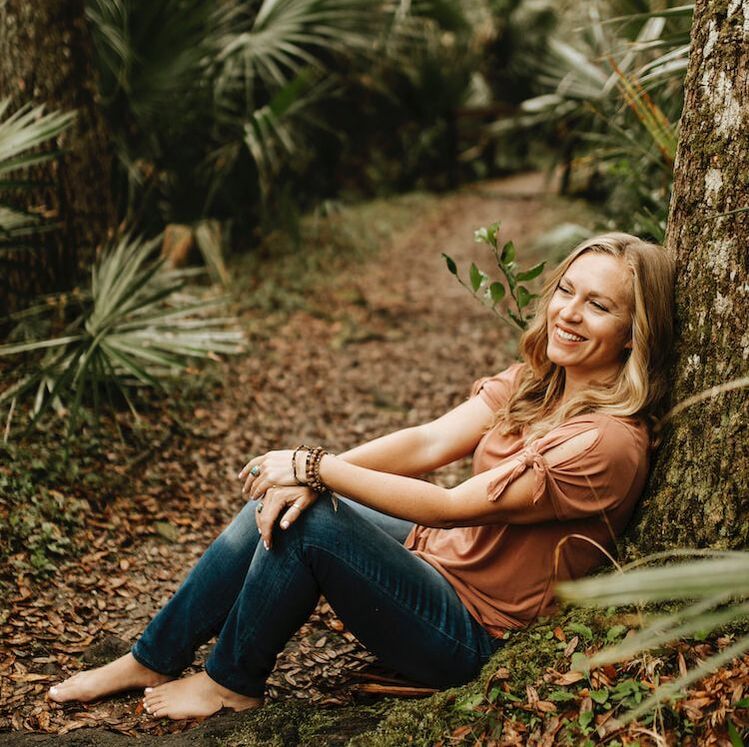|
This article was originally featured in The Drift, the official quarterly publication of the North Carolina Council of Trout Unlimited. Read the online edition here. These are unprecedented times. My first inclination was to get outside and fish. Hit the trails. Escape. Life still seems relatively normal in the woods and on the water. Then one by one, my favorite forests and parks began to close and it hit me: Perhaps this is the land, the rivers and streams pleading for a break. In fishing, we call it “resting a pool.” Our most popular fisheries receive heavy pressure particularly during high season. As worldly circumstances evolve, spring erupts and the fish spawn, I encourage you to continue to find solace in nature, but tread softly and do so mindfully. Clumsily I navigate this pandemic and feel more encouraged than ever to get outside and connect with nature. However, concern for the health of our community is forcing me to approach it differently. Instead of driving across town or a couple hours away, I’m getting my nature fix in my own backyard. This morning when I walked outside, I instantly noticed that the air smelled heavenly. It was the sweet, pure mountain air I remembered from childhood when my family would drive from Florida to my grandmother’s house in North Carolina for summer vacation. When we exited the highway into the village of Flat Rock, we would roll down the windows and that familiar, comforting smell would ease my travel-weary mind. It signaled to me, “You’re in the mountains now.” These days, I relish that scent in the mountain forests, but I haven’t had the pleasure of inhaling that soothing aroma at my home which sits off a busy road in Hendersonville. Without a doubt, decreased traffic is the culprit – and what an exquisite gift it is to breathe that fresh air on the steps of my porch. Get More Vitamin N(ature) Feeling overwhelmed and anxious has become the norm as this pandemic unfolds. Many factors are beyond our control, but these gifts from nature are free and they can be found at home. Not only do they provide comfort and peace of mind, they improve overall wellness and help to boost our immunity. While there’s no magic pill or quick fix, Vitamin N(ature) is a very powerful resource with a variety of benefits. During this time of self-isolation and social distancing, many are turning to technology and increasing screen time to get their news, binge-watching to pass the time, or worse, scrolling mindlessly through social media which often elevates anxiety and spreads misinformation. Put down the phone, turn off the TV and tune into nature. A study on “Cultivating Recovery” published by Huibrie Pieters, et al. in the February 2019 issue of the Archives of Psychiatric Nursing revealed that time in nature reduces feelings of isolation, promotes calm, and lifts patients’ mood. As we quarantine ourselves, grant yourself permission to go outside and be still. Take this time to turn inward and reconnect to yourself, to the earth. There are two critical things we can do to strengthen our immune systems: reduce stress and get ample sleep. An abundance of scientific research indicates that being in nature helps to:
Spending time outdoors deeply enhances wellbeing, creativity and happiness. Nature provides tremendous immune-boosting qualities like reducing anxiety and increasing sleep duration, according to a study published in the September 2015 issue of Preventive Medicine, “Sleep Insufficiency and the Natural Environment” by Diana Grigsby-Toussaint, et al. Need more incentive to go outside? Trees and plants offer incredible healing properties. In fact, they produce volatile organic compounds called phytoncides, their natural defense against disease, bacteria and parasites. We reap the rewards when we breathe in these organic compounds, which increases our natural killer (NK) cells – a type of white blood cell that helps boost immunity, according to a 2009 study on the “Effect of Phytoncide from Trees on Human Natural Killer Cell Function” by Dr. Qing Li, et al. published in the International Journal of Immunopathology and Pharmacology. Our bodies also need adequate Vitamin D to produce the antimicrobial proteins that kill viruses and bacteria. We produce it naturally when the sun’s ultraviolet rays penetrate our skin, initiating a chain reaction converting a form of cholesterol into Vitamin D. By spending time outside, we soak up the sunshine and produce more Vitamin D which could help lower our risk for respiratory illness.  Trout lily Trout lily Your Nature Prescription Find a quiet place outside to sit and spend 30 minutes silently noticing the natural world around you. If you have some woods or a forest near your house, wonderful! However, you can reap the rewards of nature in your own backyard, on your porch or apartment balcony. Even gazing out the window at natural surroundings or the sky has healing, immune boosting qualities. As a last resort, viewing images of nature on your television, computer, or in the form of art sends pleasing messages to your brain, helping to calm the mind and reduce stress. Begin by making yourself comfortable in a seated position. Close your eyes and breathe deeply. Slowly scan your entire body from the crown of your head to the tips of your fingers and toes, noticing discomfort. Make any adjustments or stretch to bring relief. Try to relax tight muscles and unclench your jaw. Feel your feet rooted firmly on the ground and allow the earth to fully support you. Allow your lips to gently curl into a relaxed smile. As we explore our many senses, allow yourself permission to tune into anything you find pleasurable. Just be with it. Acknowledge that any mechanical or man-made influences in juxtaposition to the natural world are also part of the experience. Smile and let them flow into one ear and out the other, focusing on the pleasing sensations from nature. Pause for a couple minutes and notice how the sun and fresh air greets your skin. How does it feel? Clench your fists tightly for 10 seconds, then let go and release your grip. Relax your fingers and open your palms up, noticing the weight and humidity of the atmosphere, or perhaps a slight breeze. Take several rounds of deep, oxygen-rich breaths through your nose. Inhale for four seconds and exhale for four seconds. Tilt your head back and lift your nose to the sky, as if you’re a wolf or a bear catching a scent. What do you smell? Does it evoke an emotion or a memory? Repeat that sequence of breaths, but this time, breathe through your mouth. What do you taste? As you continue to breathe deeply, consider the oxygen that the plants produce for you, and the carbon dioxide you return to them. Take several minutes to listen to the natural world that surrounds you, tuning in to the sounds you find pleasurable, like a radio. What’s the loudest sound? Spend a few minutes listening into the distance. What is the faintest sound? Imagine your eyes are blossoms, getting ready to open for the first time. Now slowly open your eyes and observe the natural elements that surround you. See the world as if you’ve never seen it before. Spend a few moments gazing all around. What stands out?  Violet Violet After you’ve completed this sensory meditation, continue to sit quietly for at least 10 more minutes and observe your surroundings. What are you noticing? Today, I noticed hundreds of violets strewn across my lawn – my great grandmother’s favorite flower. It brought me comfort. I was delighted to see the yellow blooms and mottled leaves of trout lilies in the woods near my house (pictured above). I’ve heard the Cherokee believe that when the “mountain trout” blooms, it’s time to fish. These delicate blooms are fleeting; they remind me to slow down and enjoy the present moment. Journal your thoughts or share them with a friend or loved one. Some prompts to consider: What might you do to give back to the rivers and streams that have given you so much? How might this reset affect the way you view and care for the land and water? If you feel inspired, draw or sketch an image that stands out from your experience. Use this practice daily, or anytime you feel your mind drifting to an anxious state. Aim to spend at least 30 minutes outdoors each day. If your local quarantine measures prevent you from going outside, try 60 minutes of indoor nature therapy (i.e. gazing out a window for spans of 10-15 minutes, or watching soothing nature films). We are experiencing unusual circumstances. I invite you to ponder with me for a moment: Perhaps this is exactly what we need, what the earth needs. Grant yourself permission to be still. Reset. Recalibrate. Restore. Love the land in your own backyard. Tend to it. Let’s take the pressure off the water and the fish for a moment, step back and give thanks for all the natural resources we have. And when the veil lifts, let’s go out into the world with a renewed sense of mindfulness and gratitude for all that we have. About the Author Kelly Bruce is a Certified Forest Therapy Guide and the founder of Natural Wanders. She leads forest bathing and nature therapy walks in the Blue Ridge and Smoky Mountains of Western North Carolina. Subscribe to her e-newsletter for more inspiration from nature and to learn about upcoming walks, workshops and retreats. Get your daily dose of Vitamin N(ature) on Instagram @naturalwanders.us. To find a guide in your neck of the woods, visit NatureandForestTherapy.org.
1 Comment
9/14/2021 03:17:02 am
Good ideas. Thank for sharing.
Reply
Leave a Reply. |
Welcome! I'm Kelly Bruce, a certified nature and forest therapy guide. Read on for inspiration on improving your overall wellbeing, naturally!
Archives
March 2024
Categories
All
|


 RSS Feed
RSS Feed